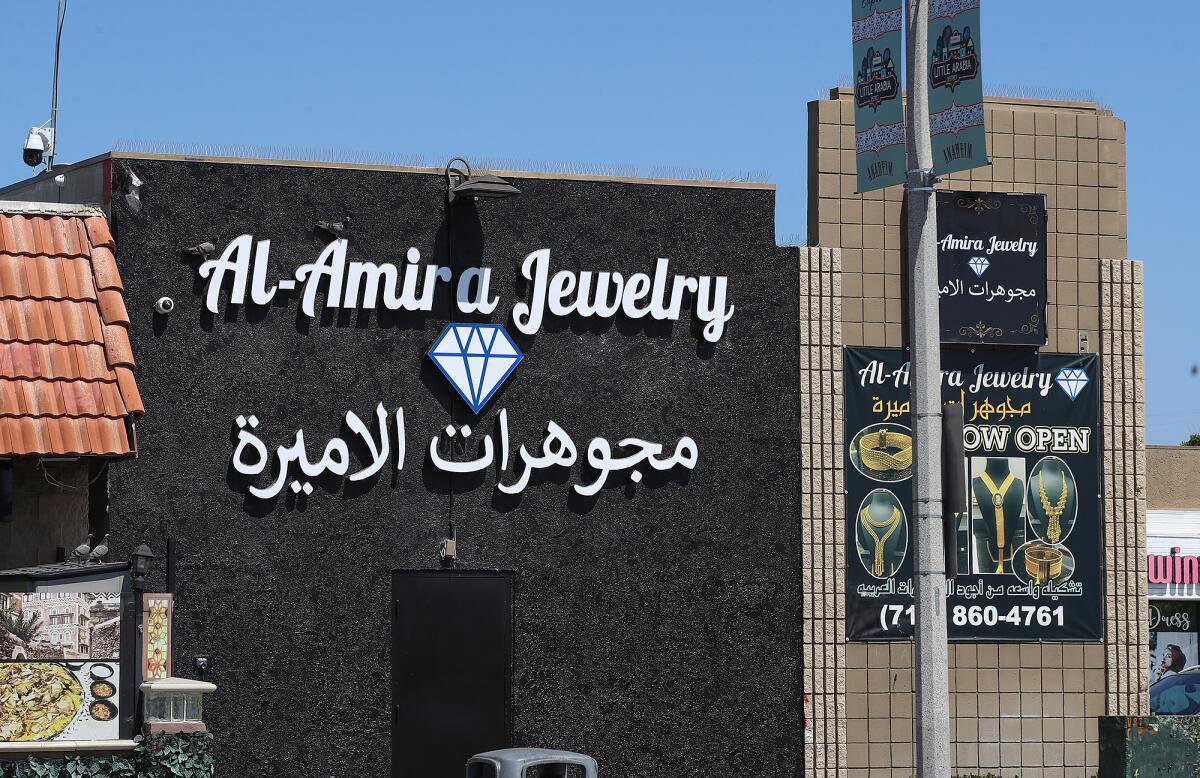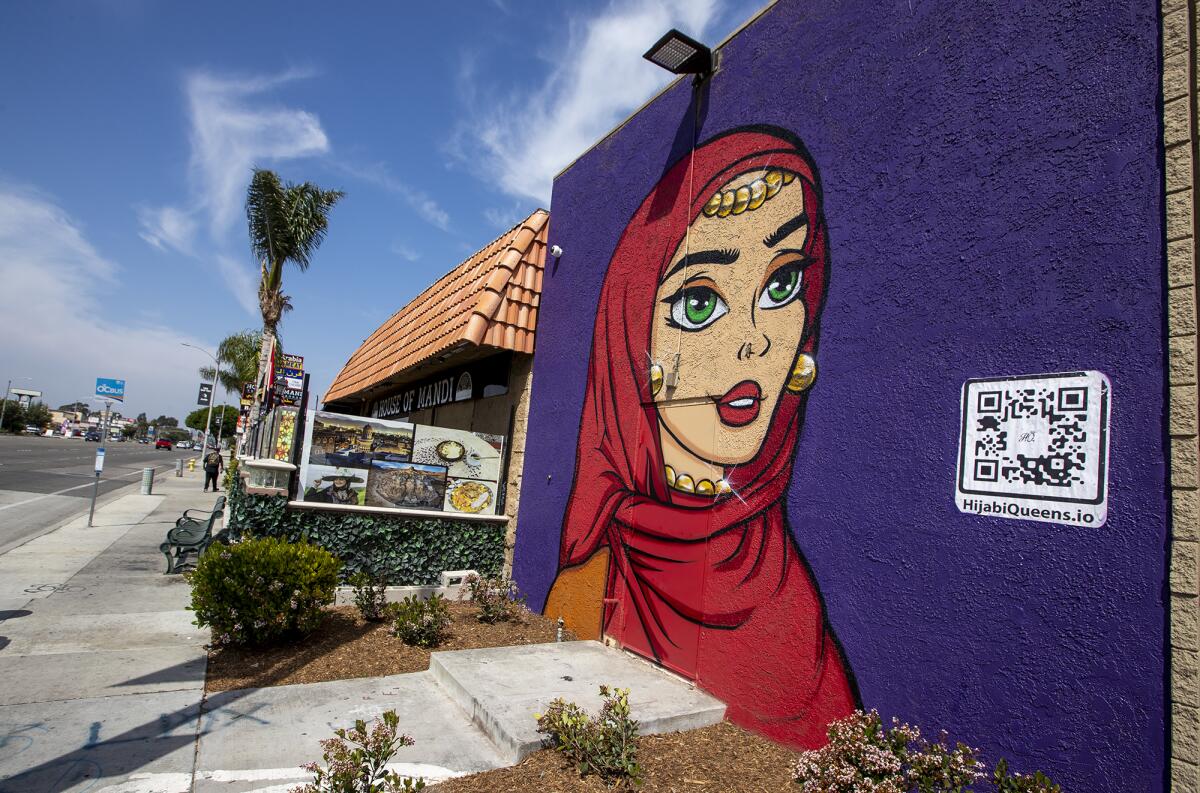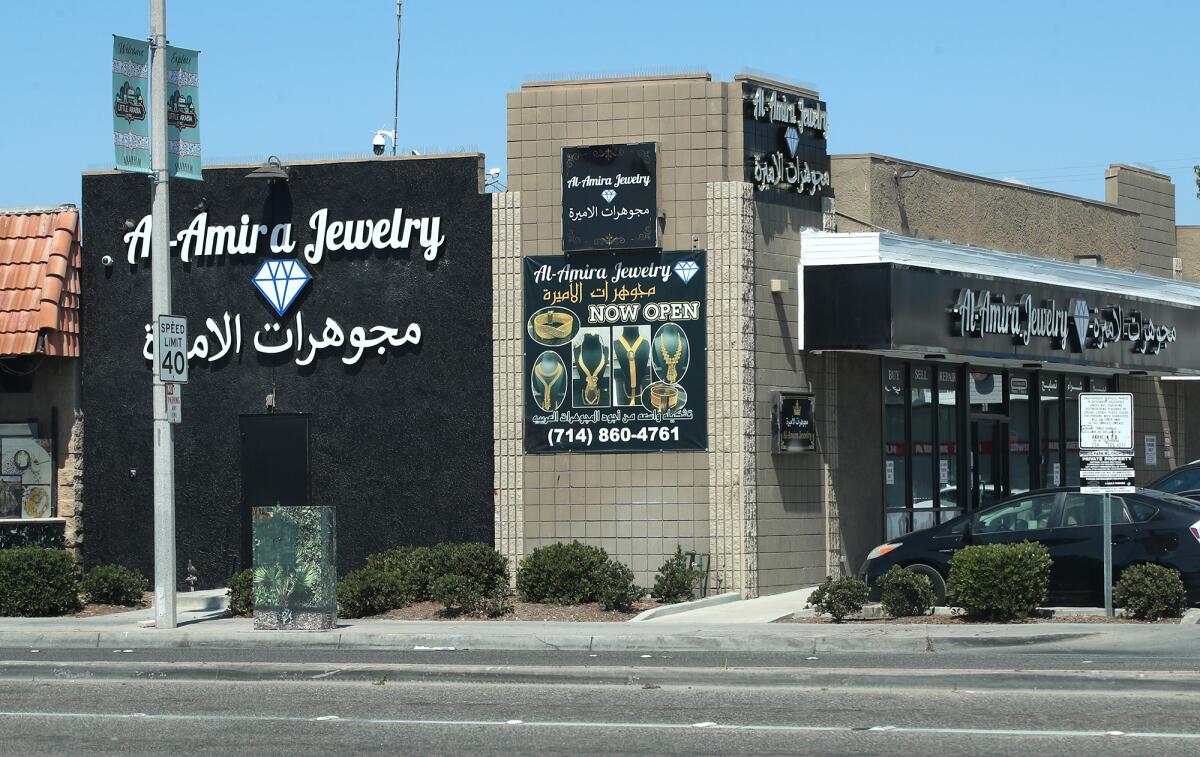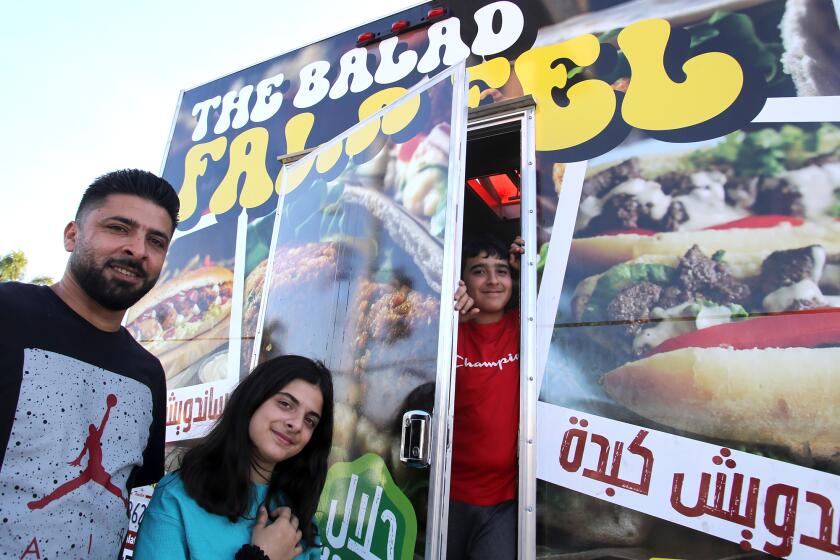A beloved ‘Hijabi Queens’ mural in Anaheim’s Little Arabia is now painted over

For the past two years, a mural of a stylish Muslim woman donning a red hijab gave Little Arabia in Anaheim a colorful sense of community.
Hijabis, who wear the headscarf in Islamic observance, proudly posed for selfies in front of the mural, which stood as a rare, positive portrayal of Muslim women through public art.
But a coat of black paint has recently erased the “Hijabi Queens” mural that once covered the privately owned wall along Brookhurst Street, Little Arabia’s officially designated thoroughfare.
The business owner of Al-Amira Jewelry ultimately decided to replace it with marquee signage advertising his shop after an offer to share the wall did not pan out.
Now that the mural is gone, Karter and Doaa Zaher, the husband-and-wife duo behind the Hijabi Queens NFT project, feel like a cultural cornerstone of Little Arabia has been lost.
Karter and Doaa Zaher’s stereotype-busting “Hijabi Queens” project comes to life as a trio of murals on the walls of the ethnic enclave.
“The mural made Muslim hijabi women feel represented,” Doaa said. “Some of them even moved closer to Brookhurst Street because of how much they felt like they belonged here. After it was taken down, it’s had the exact opposite effect, where all of these Muslim women are shocked, sad and angry.”
In 2022, the Zahers felt like the broad canvas offered by the wall made it the perfect spot in the heart of Little Arabia for the project after months of searching locations all over Southern California.
Back then, the jewelry store owner only had one request: that the hijabi depicted be bejeweled in a nod to his business.
The Zahers happily obliged.

But last month, Karter received a call about plans to replace the mural.
He visited the jewelry store and pleaded against taking it down.
According to Karter, the business owner pointed to a jewelry store across the street as new competition and cited the need to repurpose the wall for more advertising. He offered a compromise in the form of repainting a smaller mural to share the wall.
“I was 100% pushing to keep the whole mural intact,” Karter said. “If it’s half the size, it has no impact, literally nothing.”
Representatives from Al-Amira Jewelry declined to comment for the story but pointed TimesOC to statements made on the business’ behalf on social media.
Al-Amira Jewelry claimed that Karter wanted to charge $5,000 to redo a smaller-sized mural with an $80-per-month maintenance fee.
“In the [two] years the mural was up, people have tagged on it multiple times and every time we’re the ones who get it fixed,” the statement read. “This mural can and will be replaced with something that is actually for the community and not for profit.”
Karter countered that he proposed a $40-per-month maintenance fee — and the mural got painted over soon after.
Three Palestinian brothers have set up a falafel food trailer in Anaheim’s Little Arabia. The menu that offers falafel, chicken and ribeye sandwiches has attracted long lines late into the night.
With the Hijabi Queens mural now erased, Doaa said that a few Little Arabia business owners have reached out and offered their walls.
Megan Dadsi, owner of La Zwina Boutique in Little Arabia, recalled feeling shocked when she first drove by the mural and noticed it was gone.
“It portrayed our community in a beautiful way, especially with the headscarf and being a hijabi myself,” Dadsi said. “Even a lot of tourists and visitors to this area enjoyed the artwork.”
Though Dadsi wants to remain neutral in the dispute, she reached out to Doaa and offered wall space by her business for a replacement mural, if needed, and if given the OK by the landlord.

No future mural plans have been finalized.
Two other Hijabi Queens murals that were part of the project remain intact elsewhere, but neither of those artworks had the front-facing prominence as the one painted over.
The mural’s erasure has prompted debates within the community about private property, public art and Little Arabia’s identity as its business profile has only continued to grow since Anaheim voted to officially designate the ethnic enclave in 2022.
“Sure the jewelry store owns the wall, but that’s not what this is about,” Doaa said. “As Muslim Americans, and as Arab Americans, we are constantly fighting an outside beast, which is media propaganda, which is external communities, who have been calling us terrorists for decades.”
The Zahers remain hopeful that community outcry might resurrect the mural in one form or another.
“We hope to find a positive outcome for everybody,” Doaa said. “That includes the business owner. I hope that he opens his eyes to the fact that he has a responsibility to his community. I hope that he changes his ways. And I hope that his business doesn’t suffer.”
All the latest on Orange County from Orange County.
Get our free TimesOC newsletter.
You may occasionally receive promotional content from the Daily Pilot.






